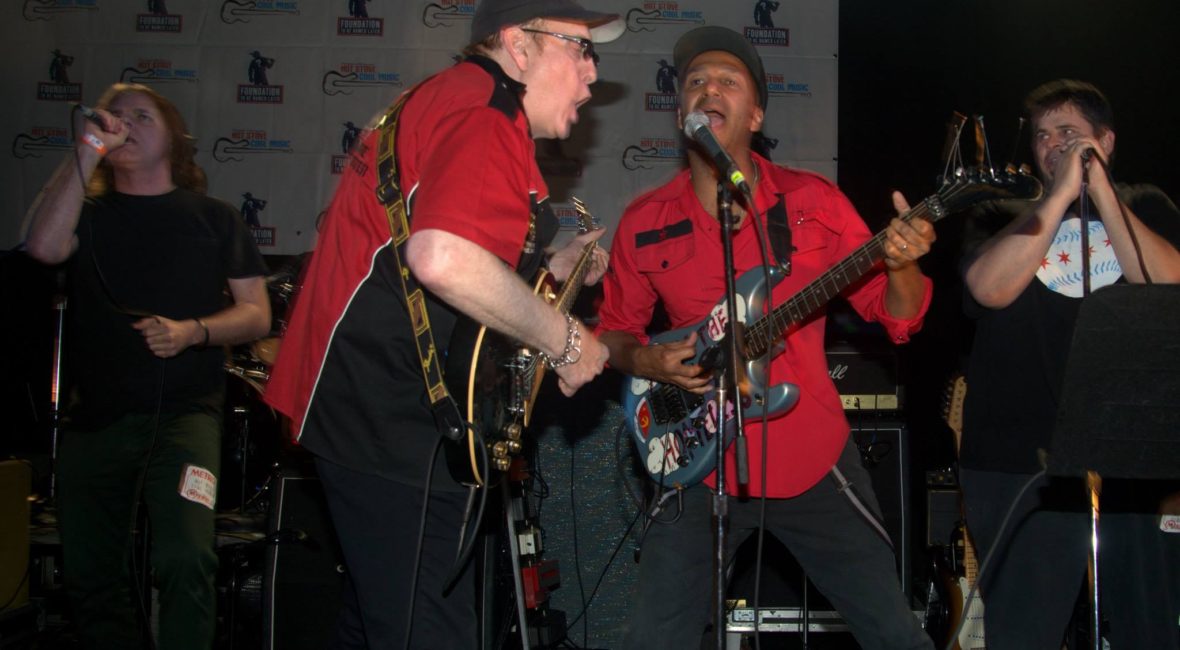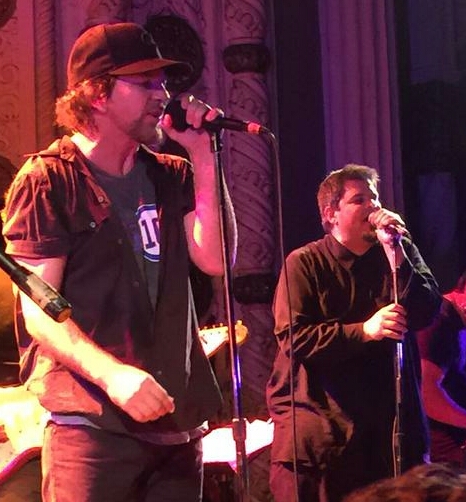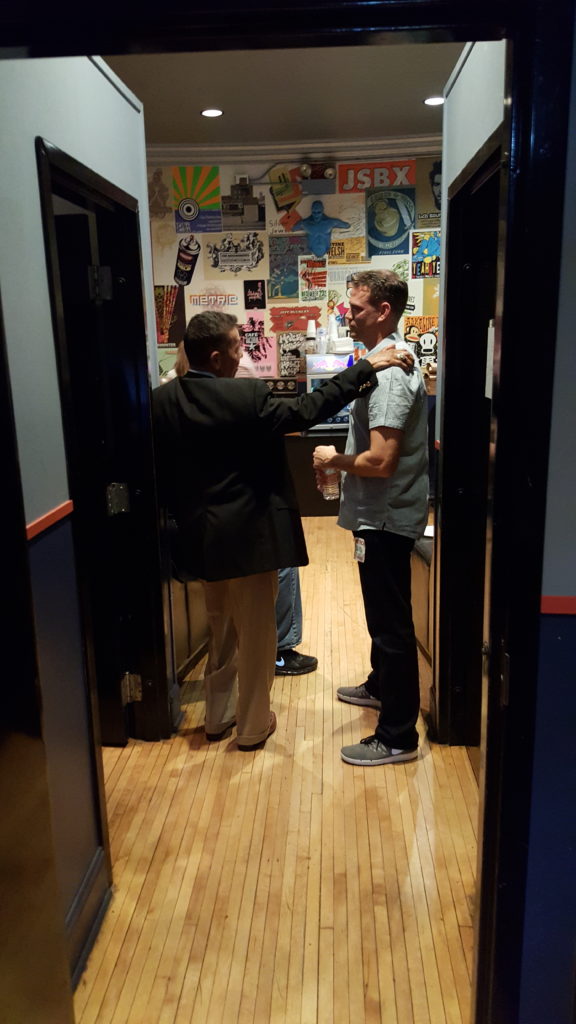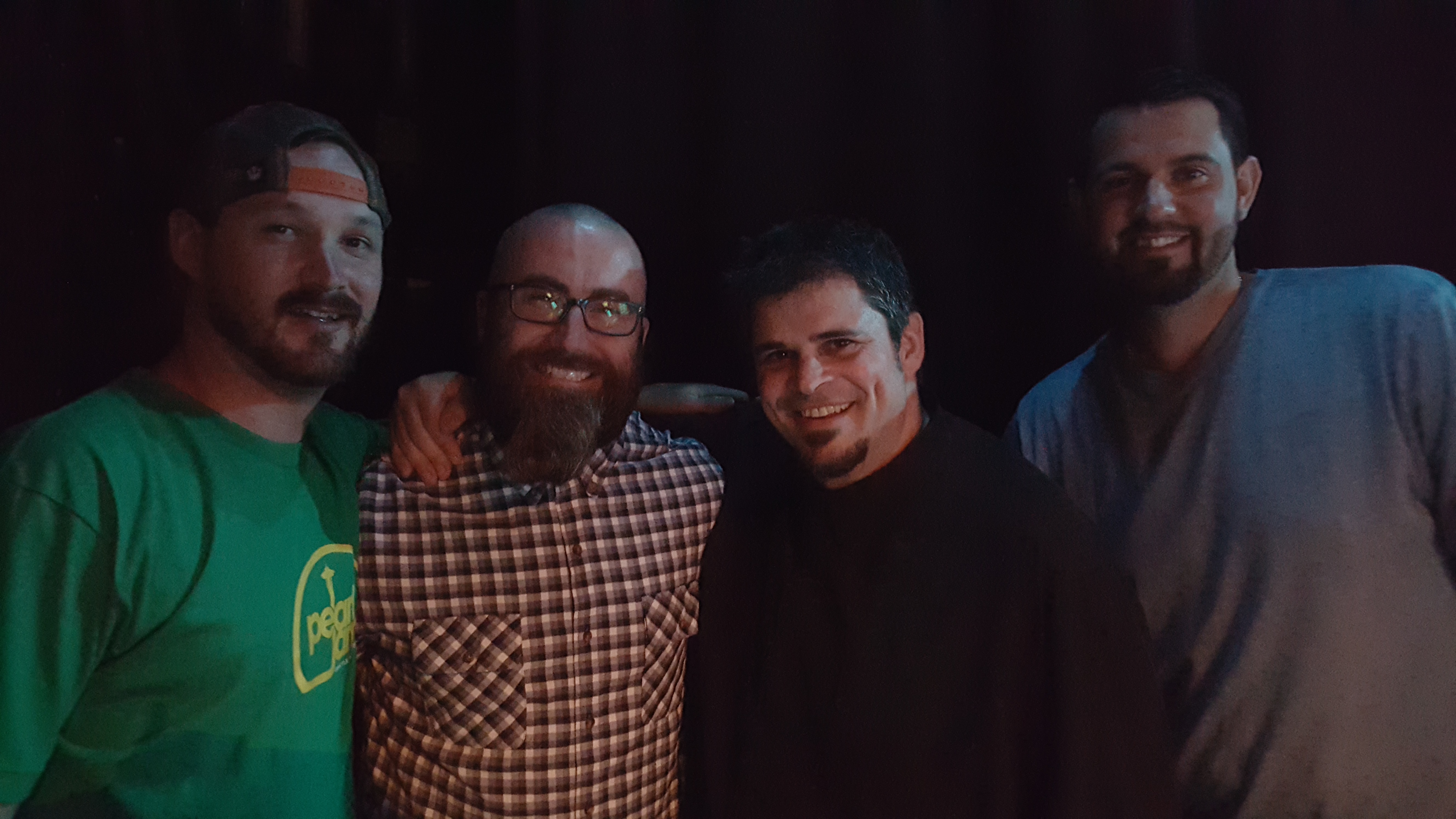You get to Wrigley Field at 8:15 a.m. The neighborhood is already buzzing, and the ballpark bar is filled with workers prepping for the masses.
You’re part of a radio show speaking directly to the hopes, fears, joy and criticism of a rabid Cubs fan base that still can’t quite believe this is happening. Your interactions are alternately filled with calm, titillation, analysis, nervous laughter and genuine romance.
The president of baseball operations sits down with you at 11:30 a.m. and thinks back to his first few months on the job in late 2011. He tells you about the 125 members of the scouting and development team, all together in a hotel ballroom in Mesa, painstakingly mapping out a manual on how the Cubs were going to teach the game. There was one day for hitting, one for pitching, one for defense, a fourth to consolidate. A blueprint emerged. He tells you how this week those same 125 people were flown in, with their families, to walk the warning track and sit in the bleachers for the first home playoff game of the era the day before.
Symmetry. Deserved rewards.
The manager tells you at 12:40 p.m. that he couldn’t be more proud of his team, for approaching these moments the way they have. He doesn’t say it, and he doesn’t need to, but you know he has been the driving force for their confidence and calm. He’s a master of both strategy and atmosphere. He told you at the beginning how trusting relationships would be built and how brutal honesty would get the best from his players.
It’s worked.
The show ends, the neighborhood fills and you wait for your friend to meet you for the game. He’s a lifelong Cubs fan, approaching 50, ready to attend his first ever October game. You’re in the upper deck on the first-base side. You get sky and sunset views. The orange and red foliage on neighborhood trees behind the bleachers reminds you all evening that this is fall baseball, and your gratitude multiplies.
You stand with two strikes, for every batter on either team. You question the best manager you’ve ever seen when his starter gets hit hard, because that’s your right. You’ve invested the hours watching and learning the game so you can feel you ought to be in charge. The fans are glad you aren’t.
You high-five strangers when the Cubs get out of a jam. You jump and cackle when the pitcher gets an RBI single. You watch the hot-headed Cardinals pitcher lose his cool and hope he crumbles.
You watch the last remaining rookie slugger join the power barrage, guessing fastball against a frustrated pitcher and destroying a three-run homer into the right-field bleachers. You watch him sprint around the bases, jump into the dugout and bounce from teammate to teammate as the crowd roars, knowing of his traumatic season and arduous work to get through it.
Deserved rewards.
As the “middle closer” is striking out the side to get out of a fourth-inning scare, you hear a swell of cheers moving behind you and turn around. There’s the owner, walking the aisle between the 400 and 500 levels, high-fiving every fan in his path. He knows how patient they’ve been. He’s also drinking in their appreciation, accepting the praise for how he’s allowed the architect to build the foundation.
Deserved rewards.
It’s 4-3, Cubs. The scrap-heap starter turned reliever is trying to survive a threat. A single to right field ties the game but doesn’t give up the lead. Instead you watch the right fielder, who will soon be subbed out for a better defender, deliver an absolutely perfect throw. He’s the best athlete on the field, and he’s playing the best baseball of his professional life at the most important of his times. You plan to watch the throw again and again when you get home.
Like your mom used to say, a beautifully executed play looks like ballet.
You watch the 26-year-old “veteran” leader take the lefty reliever deep for the second game in a row. You doubt one run is enough. Later, the 22-year-old slugger hits a blast you think must have hit one of those now-empty rooftops behind the giant right-field videoboard. The slugger gets a curtain call, which you miss because you’re still talking to strangers about the majesty of the bomb.
You cringe when the reliever you don’t trust, against St. Louis, comes in, and then you smile when he dominates. You watch the closer bring the shrine tantalizingly close to bliss, needed outs dwindling down to one. The best Cardinal singles, bringing the tying run to the plate. It’s not going to feel easy.
Good. This isn’t easy. Rebuilding an organization isn’t easy. Finding future stars in the draft, in trade and in international signings isn’t easy. Coming together as a mix of players and accepting whatever role the boss asks of you isn’t easy. Hell, trusting the plan while watching three years of noncompetitive baseball from your couch isn’t easy.
And winning a playoff series against the top rival and organizational model isn’t easy. It’s stressful for the viewers. But the stress makes the success that much sweeter. This is why you always embrace the stress.
They win. You look to the sky. You think of Cubs fans you loved who aren’t here, and you hope they’re watching. You thank the stars for your presence. You hug your friend. You sing along to a song you hate. You let yourself say nothing, drinking in as much as your senses will allow. You sing some more. You text your father. You don’t leave.
You watch men in uniforms and then suits pile on to each other with that special mix of relief and elation. You watch the media scurrying to capture their words. You look to the brand new videoboard to see the disco-ball champagne celebration going on inside the clubhouse. You see the shortstop-turned-second baseman who took so much criticism this year in ski goggles spraying champagne onto the ceiling, and you wonder how on earth we all got here.
Deserved rewards.
You want to see that twice more.







